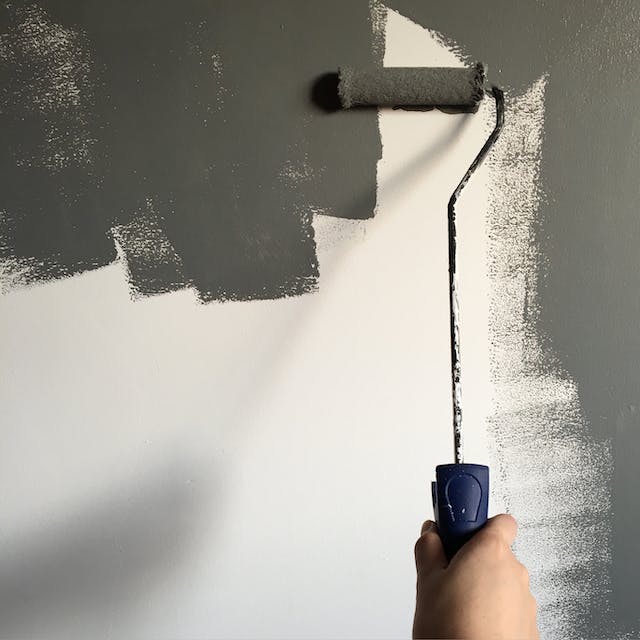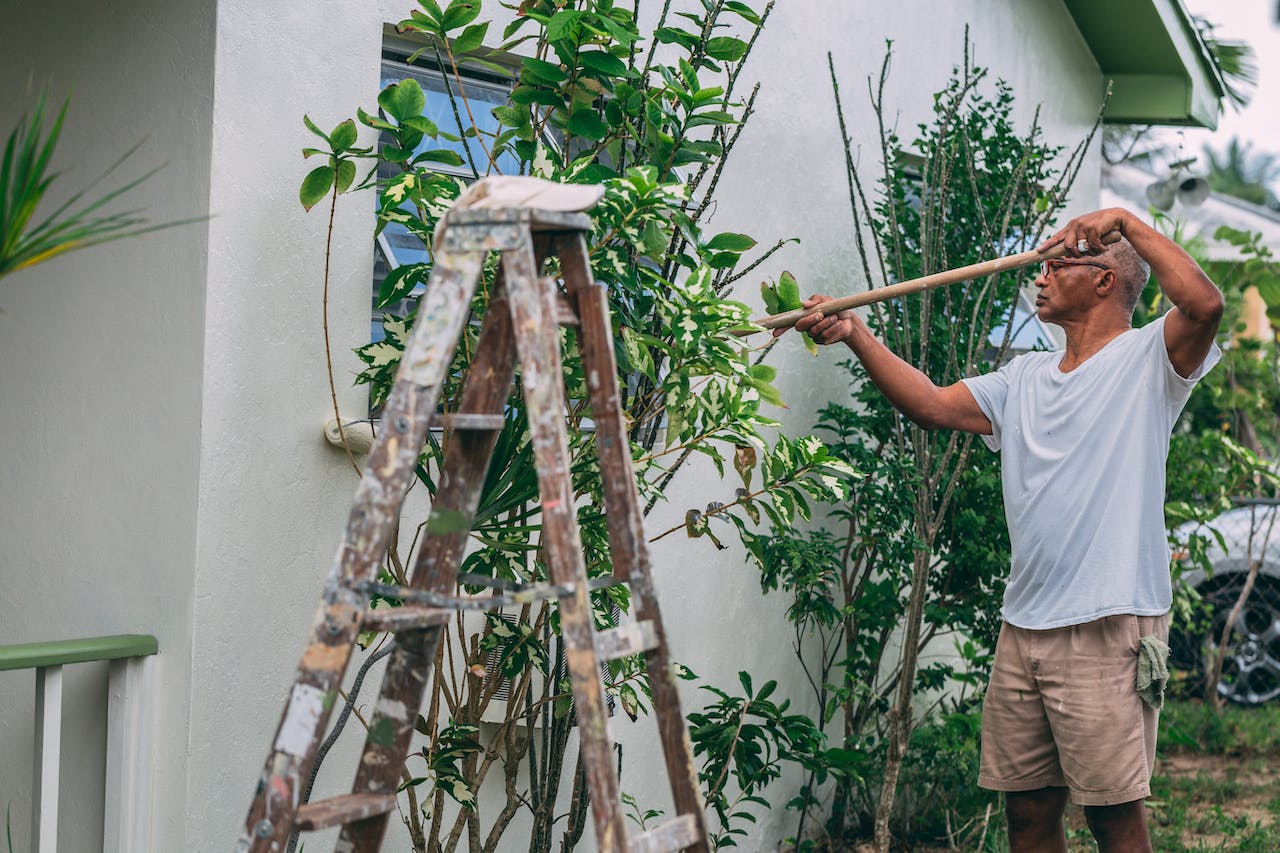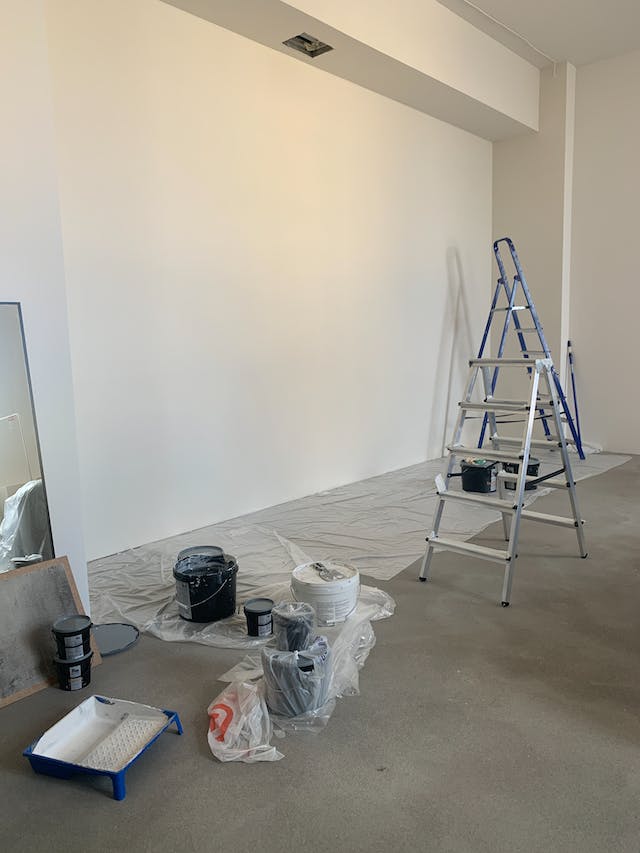Aesthetics play a pivotal role in shaping the image and perception of a business. The appearance of a commercial property is often the first impression that clients, customers, and visitors have of a company, and it can significantly impact the overall success of the business. This is where the role of a skilled commercial painter becomes paramount.
Hiring a skilled commercial painter is not just about adding a fresh coat of paint to the walls. It’s about entrusting your property to professionals who understand the details of their craft, possess the experience to deliver exceptional results, and can transform a space into a work of art.
The importance of skilled commercial painters extends beyond aesthetics. They can enhance the durability of surfaces, safeguard against wear and tear, and ultimately contribute to the longevity of your property’s appearance.
In this blog, we’ll explore the essential qualities that make a professional commercial painter stand out.
Qualities That Commercial Painters Should Have
Experience and Expertise
Professional commercial painters should have years of experience in the industry. They understand the intricate details of various painting techniques, surfaces, and materials. Their expertise allows them to assess your commercial property’s unique needs and recommend the best approach for your project.
Experience also means they are well-versed in handling unexpected challenges during a painting project, ensuring a smooth and successful outcome.
Attention to Detail
A professional commercial painter must pay meticulous attention to detail. They should understand that even the smallest imperfections in a paint job can negatively impact the overall appearance of your property.
From precise masking and taping to ensuring even paint coverage, a professional painter’s commitment to detail sets them apart. They must take the time to properly prepare surfaces to ensure a flawless finish that enhances the aesthetic appeal of your property.
Proper Equipment and Tools
The right tools can make a significant difference in the quality and efficiency of a commercial painting job. Professional painters invest in high-quality equipment and tools, from paintbrushes and rollers to sprayers and scaffolding.
Having the appropriate tools allows them to work efficiently, which results in a faster turnaround time and a more even and professional finish.
Knowledge of Paint Products
A professional commercial painter must be well-informed about various paint products and their applications. They should be able to guide you in selecting the right type of paint for your project, considering factors like the surface material, location, and durability requirements.
Additionally, they should stay up-to-date with the latest trends and innovations in the paint industry to offer you the best options available.
Strong Work Ethic
Professional painters must understand the importance of meeting deadlines and delivering on their promises. They should have a strong work ethic, which means they arrive on time, work diligently, and maintain a clean and organized workspace. This professionalism not only ensures the timely completion of your project but also minimizes disruptions to your business operations.
Safety Awareness
Commercial painting projects often involve working at heights or in challenging conditions. Professional painters should prioritize safety and be well-versed in safety protocols and best practices. They must use appropriate safety gear, follow safety guidelines, and take necessary precautions to protect themselves and others on the job site.
Environmental Awareness and Sustainability
Look for a commercial painter who demonstrates a commitment to sustainability. This includes knowledge of eco-friendly paint options, proper disposal of paint-related materials, and the ability to recommend environmentally responsible practices.
Hiring a painter with an environmentally conscious approach can not only reduce the environmental impact of the project but also align with your business’s sustainability goals.
Strong Communication Skills
Effective communication is essential in any successful commercial painting project. Professional painters should listen to your needs and expectations and provide clear, regular updates on the project’s progress. They are responsive to your questions and concerns, ensuring a transparent and collaborative working relationship.
Carpentry Skills
While not always associated with painting, carpentry skills can be incredibly valuable. These skills enable painters to address structural and surface issues before painting, make necessary repairs, and enhance woodwork and trim as needed.
Ability to Work at Heights on a Scaffold
Many commercial painting projects require working at heights. Painters should have the skills and safety knowledge to work on scaffolding or ladders safely and effectively.
Ability to Work with Drywall
Commercial painters often need to work with drywall, which might involve patching, repairing, or installing new drywalls. Familiarity with these tasks is a valuable skill.
Basic Knowledge of Electricity
Some painting projects may involve electrical fixtures and wiring. A basic understanding of electricity helps ensure safety and coordination with electricians if needed.
Knowledge of Using Spray Painters
Spray painting can be an efficient method for large surface areas. Knowing how to use spray painters effectively is an important skill for professional painters.
Knowledge of Using Power/Pressure Washers
Preparing surfaces often involves power washing. Hence, knowing how to use pressure washers correctly ensures that surfaces are clean and ready for painting.
What to Consider When Hiring a Commercial Painter
Experience
When evaluating potential commercial painters, experience should be a top consideration. Seek out a painter with a proven track record in commercial painting. Commercial projects often have unique demands that differ from residential work.
Experience in the commercial sector signifies the ability to handle these specific requirements. A painter who has worked on various commercial projects, such as offices, warehouses, or retail stores, is better equipped to meet your project’s distinct needs.
Licensing and Insurance
Business License: A valid business license is an essential credential to verify. Ensure that the painter holds the business licenses and permits required in your area. This not only reflects professionalism but also compliance with local regulations.
Insurance Coverage: Painter’s insurance coverage is not to be ignored. They should carry liability insurance and workers’ compensation insurance. These insurances protect you from potential liabilities in case of accidents or property damage during the project.
References and Portfolio
Client References: Request references from the painter and reach out to previous clients. Feedback from satisfied customers serves as a strong indicator of a reputable painter.
Portfolio Review: To gain insight into the painter’s work quality, style, and range of services, review their portfolio of completed projects. This allows you to assess whether their previous work aligns with your specific needs and preferences.
Contracts and Estimates
Detailed Written Contract: A well-documented contract is essential. It should outline the scope of work, materials to be used, project timeline, and payment terms. A written contract clarifies expectations and protects both parties involved.
Accurate Estimates: Request a detailed and accurate cost estimate for your project. This estimate should encompass all expenses, including labor, materials, equipment, and any additional costs for potential unforeseen circumstances.
Warranty and Guarantee
Workmanship Warranty: Inquire about the painter’s warranty for their work. A professional commercial painter should have confidence in their craftsmanship and be willing to address any issues arising after the project’s completion.
Material Quality: Ensure that the painter uses high-quality paint and materials. The choice of materials significantly impacts the longevity and durability of the paint job.
Safety Measures
Safety is important, especially when dealing with projects that involve working at heights or in potentially hazardous environments. Inquire about the safety measures and protocols the painter follows to protect workers and your property during the project.
Communication and Professionalism
Effective communication is key to any successful project. A professional painter should be responsive, clear, and open to discussing your needs and preferences. Additionally, professionalism should be evident in their punctuality, maintaining a clean and organized work area, and their conduct throughout the project.
Conclusion
Hiring a professional for your commercial property is a wise investment. These skilled individuals bring experience, expertise, attention to detail, the right tools, product knowledge, a strong work ethic, safety awareness, and effective communication skills to your project.
With these qualities, professional commercial painters can transform your property, giving it a fresh and attractive appearance that can benefit your business for years. So, when it’s time to embark on your next commercial painting project, remember to seek out these essential qualities in your painting professionals.
Are you looking for professional commercial painters who can not only enhance the beauty of your property but also have all the traits of an expert? Contact us at Custom Painting, Inc. today. Call us at 925-294-8062 or fill out this contact form.






